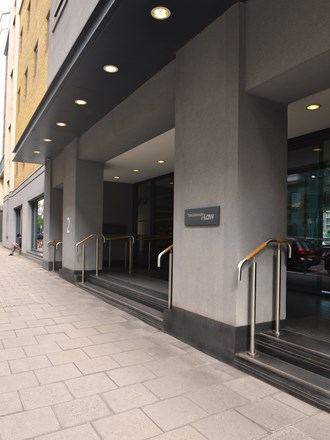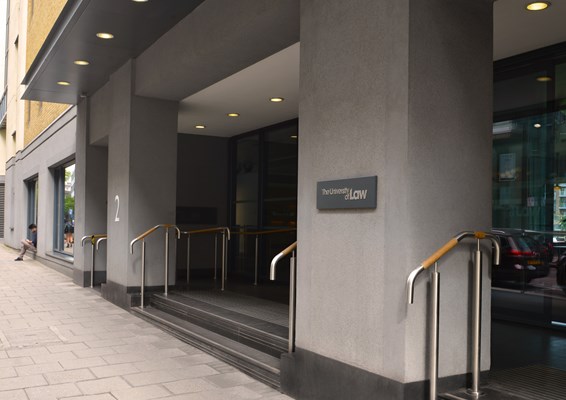Make an Enquiry

Enquiry form could not be loaded









Based at our Moorgate campus, this Centre of Excellence offers a range of programmes, resources, and partnerships to equip you with the skills and knowledge to succeed in the field of international trade and commerce.
A Centre of Excellence is a facility that provides best practice and knowledge around a particular area. Our Centres of Excellence offer you the opportunity to study your chosen law specialism with dedicated support from our expert lecturers. You’ll benefit from their knowledge and experience in international trade and commerce.
Across our different Centres of Excellence, we work with governing bodies and provide specialist modules and electives that allow you to shape your studies to meet your career needs.
London has a strong international appeal, making it the perfect place to study international law. As the UK’s largest exporter, London is at the forefront of technological innovation in trade and commerce, parties often use courts and arbitrators in the city to resolve their trade disputes.
As well as our London Moorgate campus, we also provide a teaching hub at our Online campus. The critical issues that trade and commerce law seek to address are inherently global, so the international nature of our Online campus provides an excellent opportunity for students worldwide to engage in comprehensive discussions about these issues.
As the world becomes increasingly interlinked, the importance of regulation to enable trade across borders has also increased. The matter of international trade takes such a precedence that governments and NGOs alike work together to develop frameworks that support economic trade. In fact, the United Nations has a dedicated commission – the United Nations Commission on International Trade Law (UNCITRAL) – with the purpose of harmonising and modernising such legislation.
The complexities of international trade mean that you do not just consider one body of law – you are considering the nuances of common and civil law run nations alike. The disputes that arise as a result can allow for an exciting, dynamic career choice for students who wish to go down this route. If you’re interested in studying in this area, our international trade and commerce programmes allow you to cover the fundamentals of contract law, the regulation of tariffs, shipping law, UNCITRAL Model Law, intellectual property rights and more. This subject area is suitable if you want to become a business owner or work as a legal specialist in industries such as construction, shipping, and maritime governance.
The named programmes we offer within International Trade and Commerce are:
We offer modules covering many different areas of law so you can tailor your Master’s to meet your interests and career goals. With our Master of Laws (LLM) programmes, you will have a minimum of one award-linked module, which you must write your dissertation on, and you can choose up to three elective modules.
For all programmes, you must study two modules from Group A and two from Group B. For our international trade and commerce courses, we recommend the following modules, however you have the option to choose from our full range of elective modules.
Group A
Group B
Our faculty members are recognised experts in the field, conducting cutting-edge research and engaging with industry leaders to shape the direction of policy and law.
Whilst studying her LLB, Alicia began to explore the intricacies of law and business and how that relationship impacts everyday society. This sparked an interest in how the multifaceted nature of law is affected by politics, economics, and psychology.
After completing her LLB, she went onto achieve a Distinction in her LLM in International Corporate Governance and Financial Regulation. Alicia was called to the Bar of England and Wales in 2017 by the Honourable Society of the Middle Temple where she was awarded the Harmsworth Scholarship and the Hong Kong Scholarship.
Alicia’s research focus lies in insurance, terrorism and cyber. She explores how reinsurance regimes can allow insurers to offer cover for catastrophic risks, some of which have previously been considered uninsurable risks. This is reflected in her published work, which has been featured in journals such as The Cyber Defense Review. Alicia is in the process of completing her PhD at King’s College London, which looks at the intersection between insurance law and terrorism.
Alicia is an accredited Civil-Commercial Mediator. She has also obtained her PGCHE in 2020 and is a Fellow of the Higher Education Academy.
